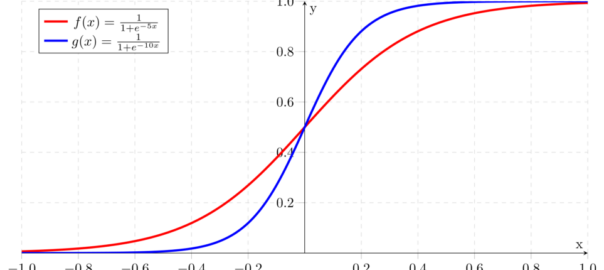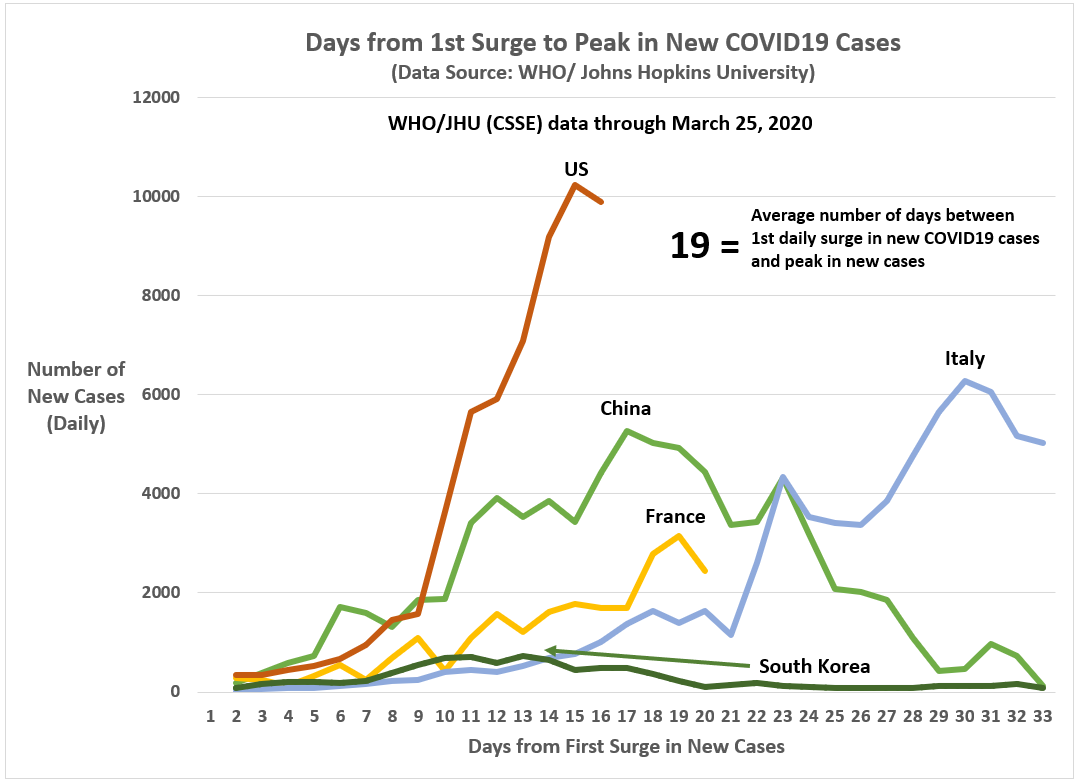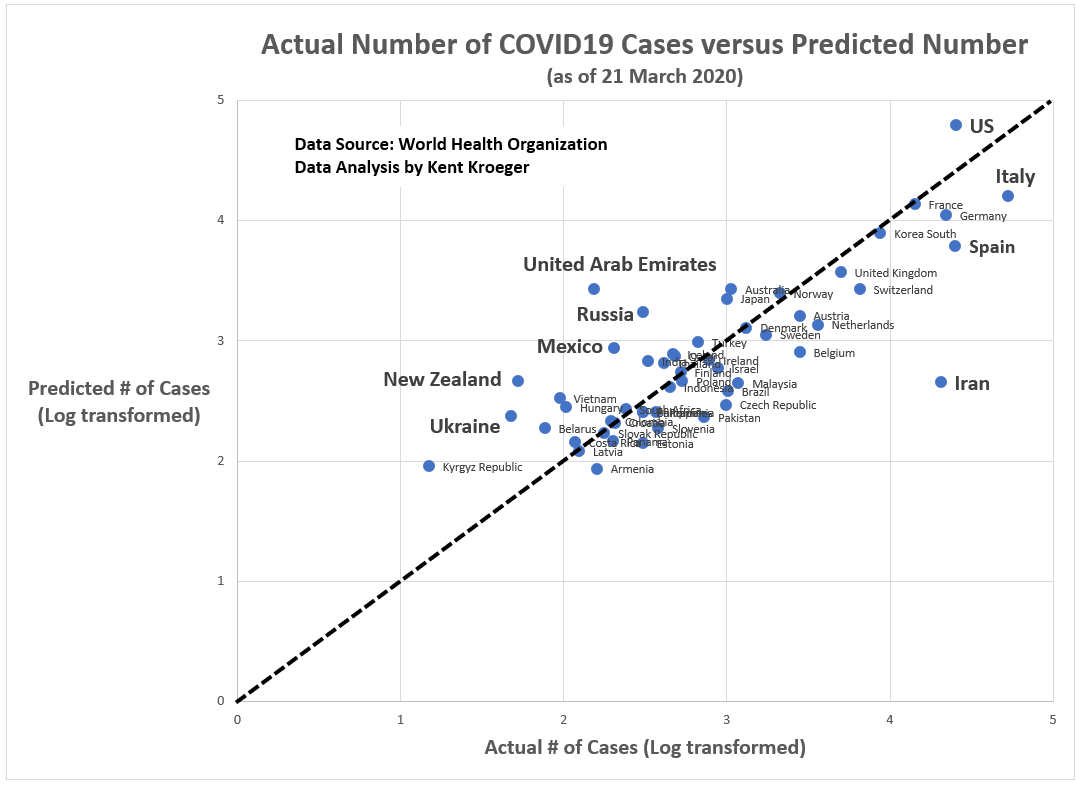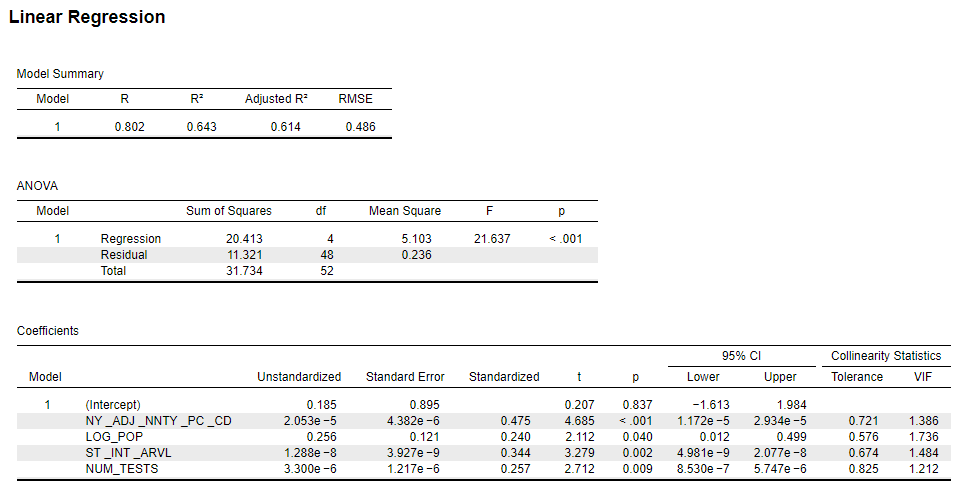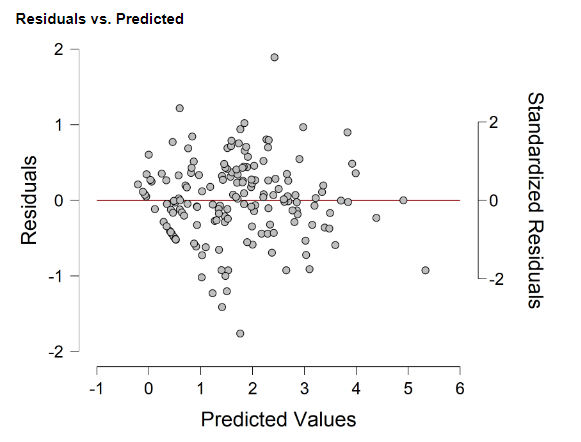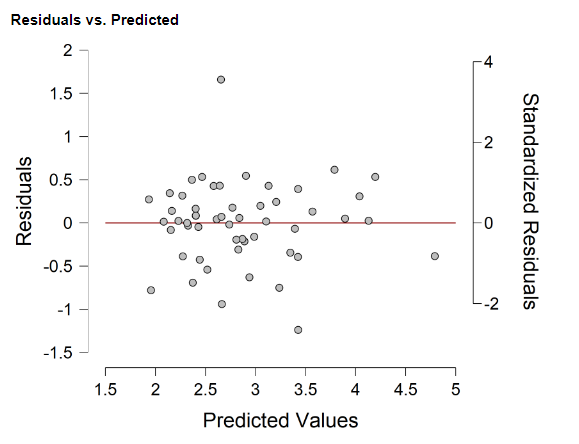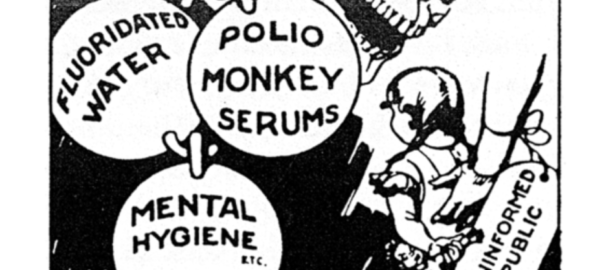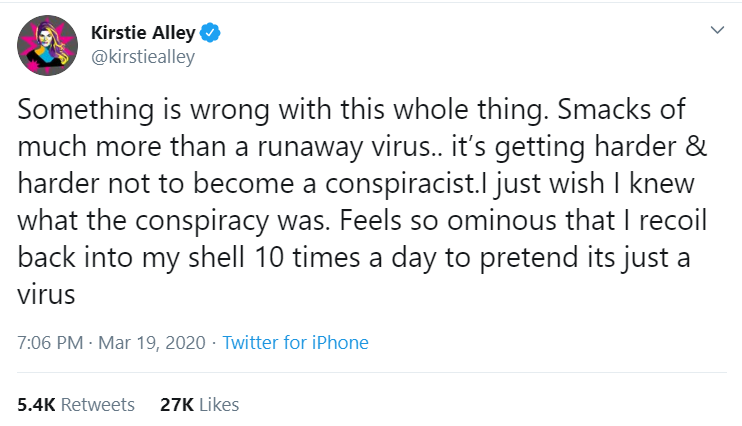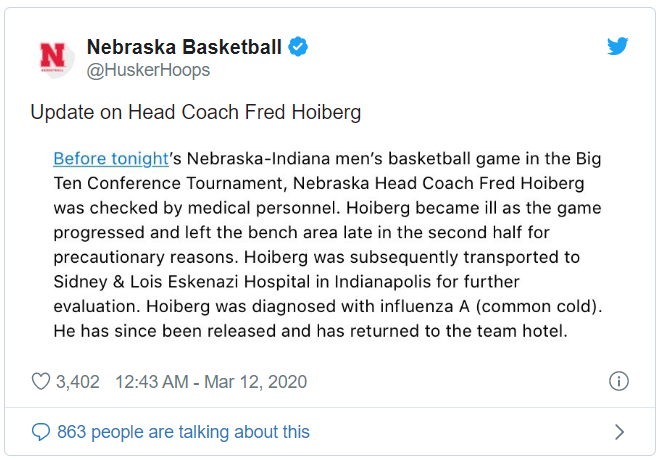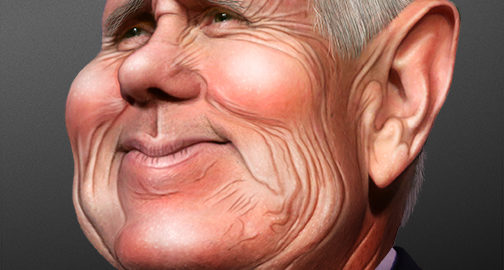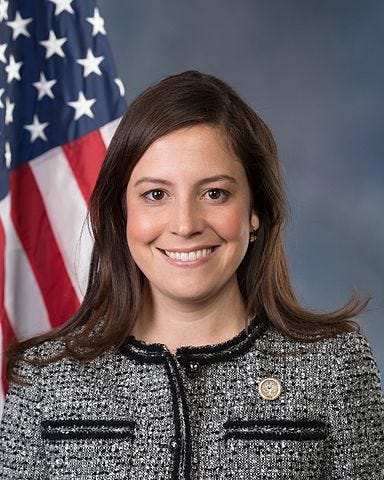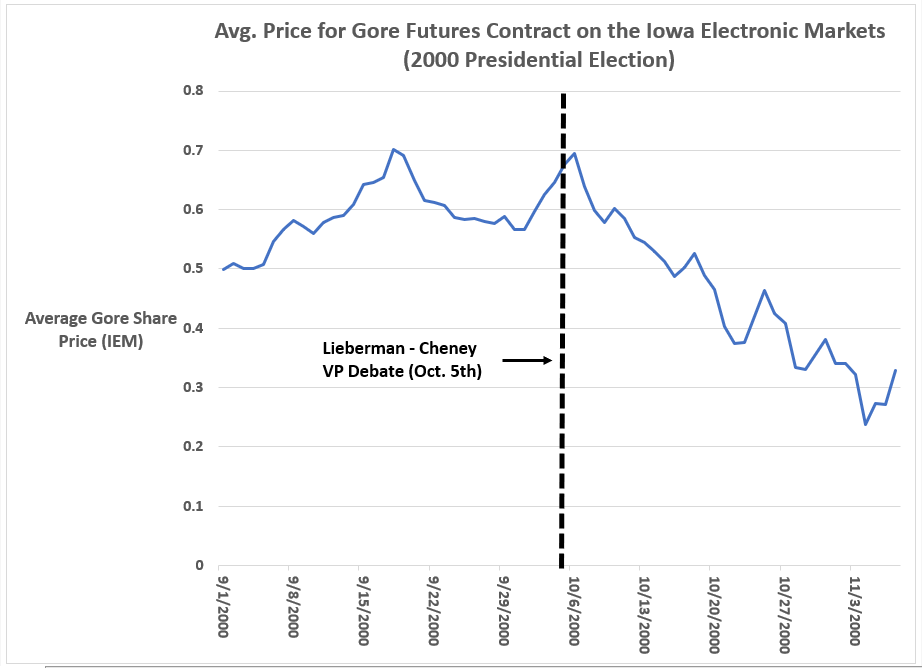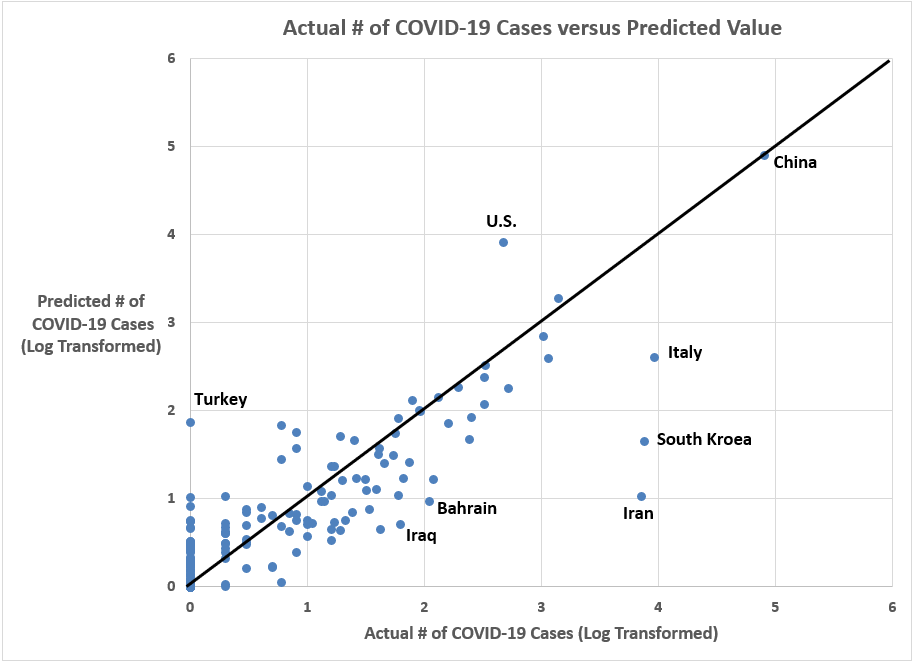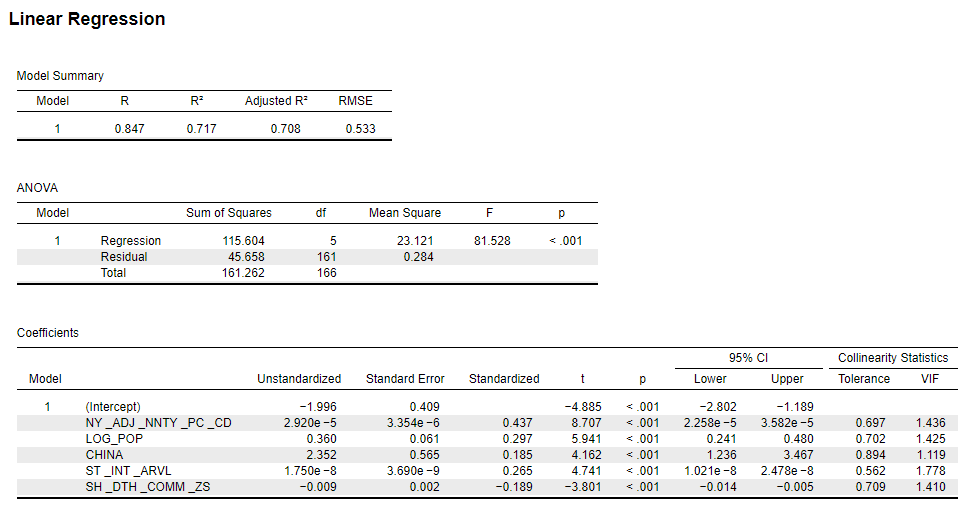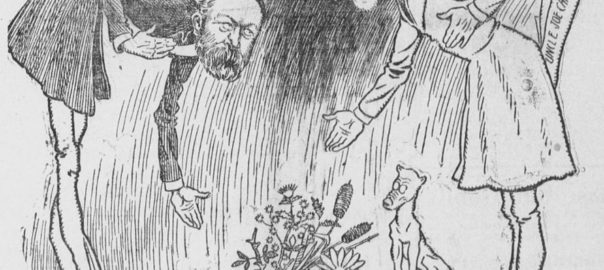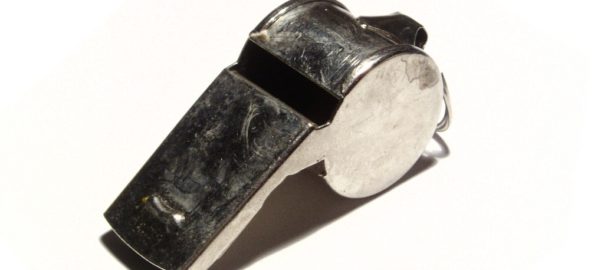By Kent R. Kroeger (Source: NuQum.com, March 27, 2020)
Every so often, when events seem to demand, political scientists crawl out of their cubby-holes and lecture the American people on how no Republican president can be popular without some combination of luck, war, deception, and a chronically lazy American public.
Political scientists have had a dim view of Americans ever since Angus Campbell, Philip Converse, Warren Miller, and Donald Stokes concluded in their book, The American Voter (1960), that the typical American voter has little more than a superficial, periodic interest in politics, over-estimate their knowledge about politics, and generally are incapable of organizing their political attitudes in a coherent manner that would resemble anything intellectually sophisticated or ideological.
This view has served political scientists much the same way the Big Bang’s cosmic background noise reminds astrophysicists that everything they measure and explain shares the same origin story.
In fairness, the research has evolved beyond the dark conclusions found in The American Voter, with some political scientists even recognizing the average American voter is remarkably adept at choosing political candidates that best match their opinions and attitudes.
Nonetheless, it seems like every time an American president — particularly one of the GOP variety — surges in job approval or popularity, academics and the news media have to set us straight.
The latest example is Donald Trump’s job approval rise since the start of the coronavirus (COVID-19) pandemic. RealClearPolitics.com’s aggregate poll summary of Trump’s job approval shows this clearly (see Figure 1):
Figure 1: Trump Presidential Job Approval (RealClearPolitics.com poll aggregate)
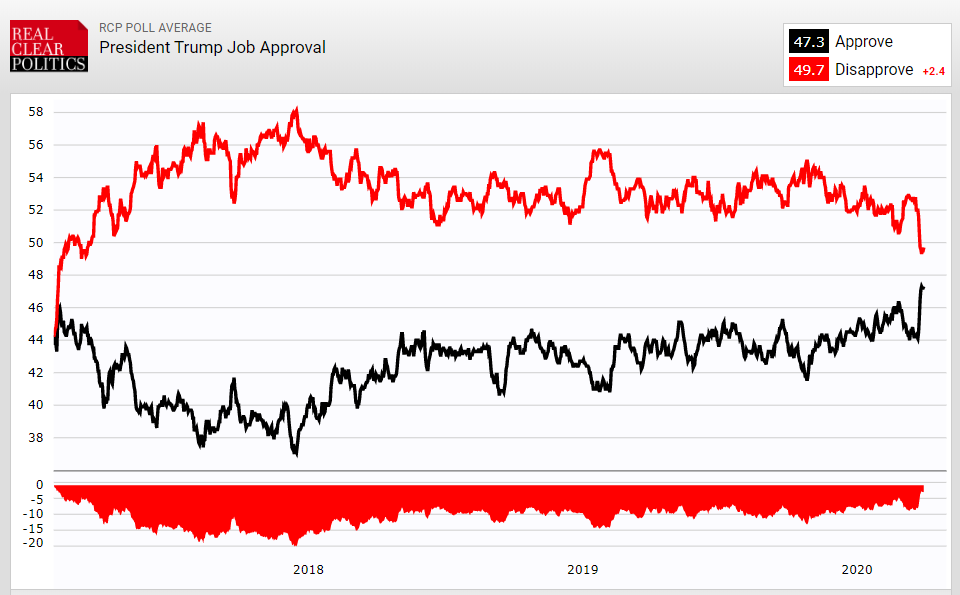
Like the grasping pincers of an earwig, the gap in Trump’s approval and disapproval has dramatically narrowed since mid-March when it became apparent that the coronavirus was not just a news story about China and Europe, but something that was going to effect every American’s daily life.
_______________________________________________________________
Mortified at the sudden relative popularity of a man who most political scientists and journalists probably despise, the cognoscenti have gone into high gear trying to explain why Trump’s rise in popularity is fleeting and won’t matter in November.
Harvard professor of public policy Matthew Baum does his best to sooth the fears of anxious Democrats staring into the abyss as their party prepares to nominate a man recognizably on the downward slope of his cognitive peak:
“Improvements in public approval ratings are notoriously ephemeral — usually lasting only a month or so. The COVID-19 rally seems unlikely to last long enough to help Trump’s reelection effort.
Indeed, as the campaign season approaches, the bipartisan support he has thus far received will almost certainly diminish. It’s impossible to predict how the current crisis will unfold. But unless the pandemic and all its attendant consequences are successfully resolved, the most likely scenario is that Trump has now reached his approval ceiling. If so, it may be downhill from there.”
NBC News, the most anti-Trump news organization — and its hard to pick just one for that title — coughed up this “hot take” on the sudden swell in Trump job approval:
“…Trump’s approval ratings — an important gauge of his re-election chances a bit over seven months away — are staying strong, by some counts even reaching highs for his tenure. In part, that’s a sign that no matter how much criticism Democrats lob at Trump, and whatever amount of negative media coverage he endures, his base supporters are resolute and unflinching. But the surge in support that goes beyond his base is a reflection of a familiar phenomenon whereby presidents become more popular in times of crisis, and according to history, his surge is puny — and likely to be short-lived.”
Puny is NBC News’ level of curiosity about why Trump, whose job approval has been far underwater since the start of his administration and has experienced the least variation of any president in the modern polling era, should suddenly climb at a rate unseen during his presidency (except for, perhaps, during the Senate’s Kavanaugh hearings in Fall 2018 and, in early 2019, when the Mueller investigation exonerated Trump of any Russiagate-related conspiratorial acts).
Since hitting rock-bottom job approval in December 2017, Trump’s job approval has increased at a tortoise’s pace of 0.36 points per month.
In the midst of a pandemic, Trump’s job approval has gained three percentage points in barely half a month. A three percentage point rise may seem “puny” relative to George H. W. Bush’s 31 percentage point gain prior to the First Gulf War or George W. Bush’s 39 percentage point surge after 9/11, but it must be viewed in the current context.
The dynamics behind presidential job approval have fundamentally changed in the past 30 years as intensifying hyper-partisanship within the U.S. Congress, the news media, and the general public has become the fundamental force in American politics. As a result, most Americans get their political news from the news source most aligned with their personal political views; and, in turn, makes aggregate presidential job approval much harder to move.
MSNBC and CNN basically run 24/7 with the same story: Trump is a lousy president. Fox News counter-programs with breaking news that Trump is still winning. And this news broadcasting model works for all the cable news networks as it produces fairly stable and profitable audiences.
Unfortunately, it also produces an overabundance of ill-informed, narrow-minded citizens.
[I will blow an aneurysm the next time I hear another Democrat defend Joe Biden’s babbling donnybrook of verbal nonsense as a function of his childhood stutter. Stuttering is not evidence of a cognitive deficiency. What at an ugly stereotype Democrats nonetheless are now pushing out about stutterers.]
_________________________________________________________________
To deride Trump’s approval gain as a temporary “rally-around-the-flag” effect is to miss the forest for the trees.
The most impressive feature of Trump’s approval is its consistent rise since December 2017, despite a national news media — Fox News and The Wall Street Journal notwithstanding— that, in his first 100 days, gave Trump the most negative news coverage of any recent president and has since maintained that negative tone.
If the national news media hammered on you the way it does on Donald Trump, do you think you would be as popular among your casual friends and acquaintances? Most certainly not.
How could the New York-Washington, D.C. media axis allow Trump’s approval to rise as it has in the past two plus years? The answer is simple: They win either way. The Trump presidency is the national media’s golden goose. And should the media axis powers defeat Trump in November, they win then too, as they will put into power a chief executive who won’t challenge their credibility and privileged status. That is what they call a win-win.
________________________________________________________________
So how why has the coronavirus pandemic worked in Trump’s short-term favor?
In contrast to the pundits dismissing Trump’s recent approval rise, as a public opinion researcher I talk in-depth to people who describe themselves as “undecided” or “independent.” They aren’t reflexive Trump supporters, but they aren’t anti-Trump either. And they may represent little more than 10 percent of the voting populace. But they matter electorally, should they overwhelmingly move for or against Trump in November.
Like all of us, swing voters directly experience the consequences of the coronavirus pandemic, but they are less influenced by national media narratives. They aren’t looking to blame the Trump administration for this crisis; but, rather, are seeking comfort in these times.
In my research with swing voters, Trump’s daily news conferences on the coronavirus pandemic has given them a sense of optimism, in contrast to the incessant gloominess of the national media.
The most recent World Health Organization (WHO) data on the coronavirus epidemic supports at least a modest level of optimism (see Figure 2). Italy and Spain, the two hardest hit European countries, are discernibly past the peak growth of the virus — both experiencing a decline in new daily cases about 20 days after the initial surge in coronavirus cases.
Figure 2: New Daily COVID-19 Cases for Selected Countries
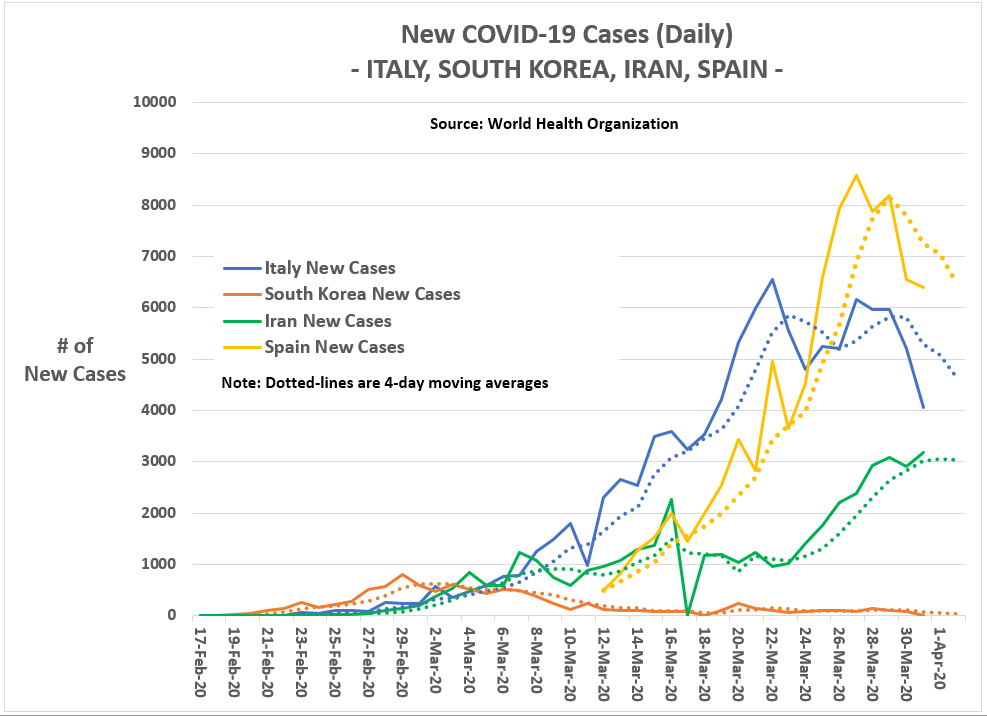
This empirical evidence supports Trump’s optimism that the U.S. will get past the worst of the coronavirus pandemic by mid-April. Forecasts by the University of Washington’s Institute for Health Metrics and Evaluation (IHME) further buttress Trump’s confidence when they project that the number of deaths-per-day and the stress on hospital resources will peak around April 15th.
Still, according to the IHME, the U.S could see 80,000 deaths due to COVID-19, a significant increase over the usual number of communicable disease related deaths the U.S. normally experiences annually.
Should the Trump administration bear some responsibility for the apparent inadequacy of its initial response to the coronavirus pandemic? Yes, of course — just as most European countries bear some responsibility for the same failure.
________________________________________________________________
There is a reason why MSNBC is not covering the coronavirus pandemic to the same extent as Fox News, and even CNN. They realize it helps Donald Trump (see Figure 3).
Figure 3: Percentage of News Network Airtime Devoted to the Coronavirus by MSNBC, CNN and Fox News (Source: The GDELT Project)
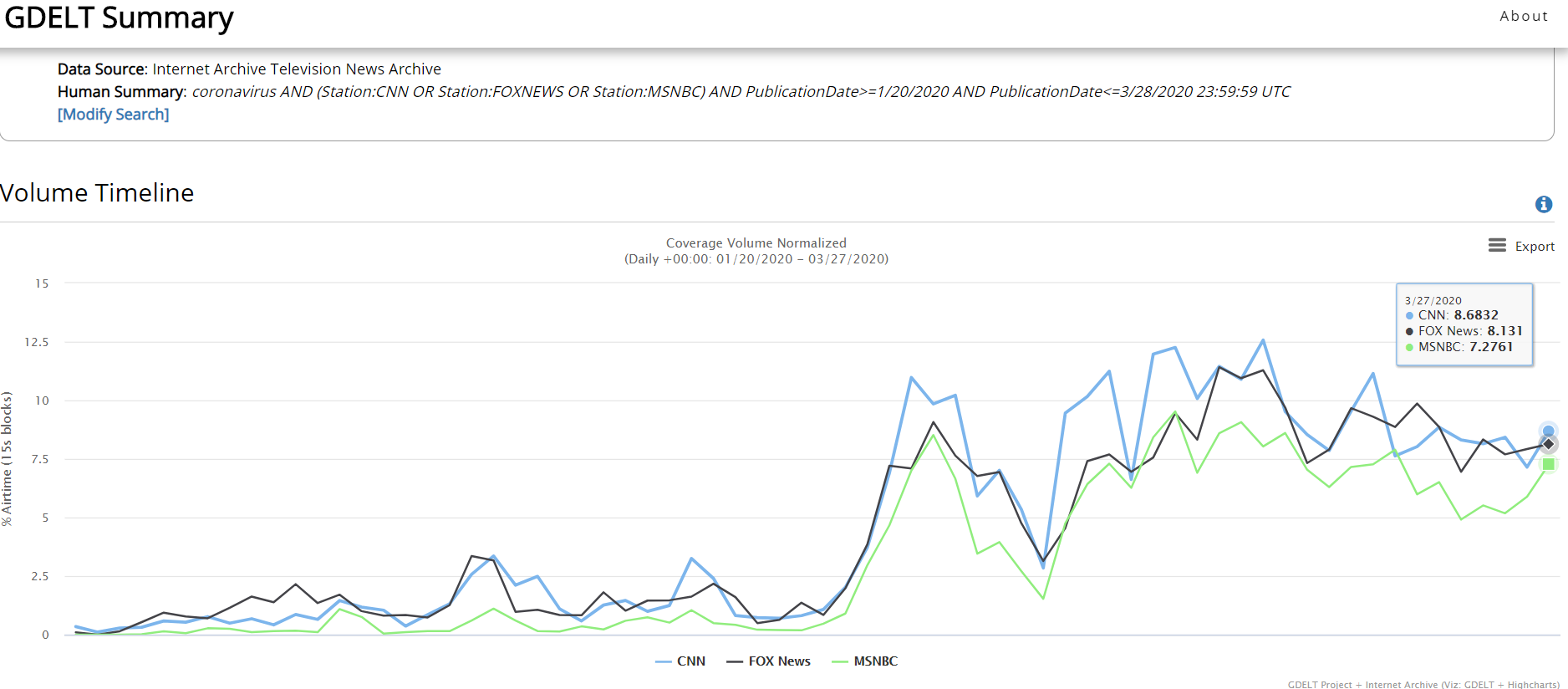
The coronavirus pandemic is humanizing Trump. His proclivity for bombast and unearned confidence actually serves the public good in these times.
People want optimism when they are feeling uncertain and stressed. Trump oozes such sentiments; in contrast, the Democrats wallow in gloom and doom.
This pandemic is going to loom over the general election in November, whether or not it is completely vanquished by then. In this time, Trump holds a tremendous advantage over the Democrats. He is the Optimist-in-Chief.
________________________________________________________________
Donald Trump is the tortoise and the Democrats are the hare in the Aesop’s Fables classic story. Trump is slowly building support among swing voters and disenchanted Democrats, most recently through his very human attempt to sooth our fears in the midst of the coronavirus pandemic. The Democrats, meanwhile, revealed their indifference to average Americans by voting unanimously with the Republicans for the Coronavirus bailout program, the biggest wealth transfer to wealthy Americans in history.
Two (only marginally different) Republican parties dominate the U.S. political system. The Democrats’ Vote Blue No Matter Who mantra doesn’t sell to intellectually honest people.
Yes, Trump is not a good person, but he is a transparent one. He shows us what he is everyday and doesn’t hide it.
I can’t say the same for most Democrats.
- K.R.K.
Offended Democrats can send their complaints to: hello@tomperez.org

